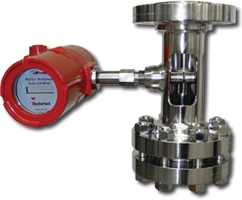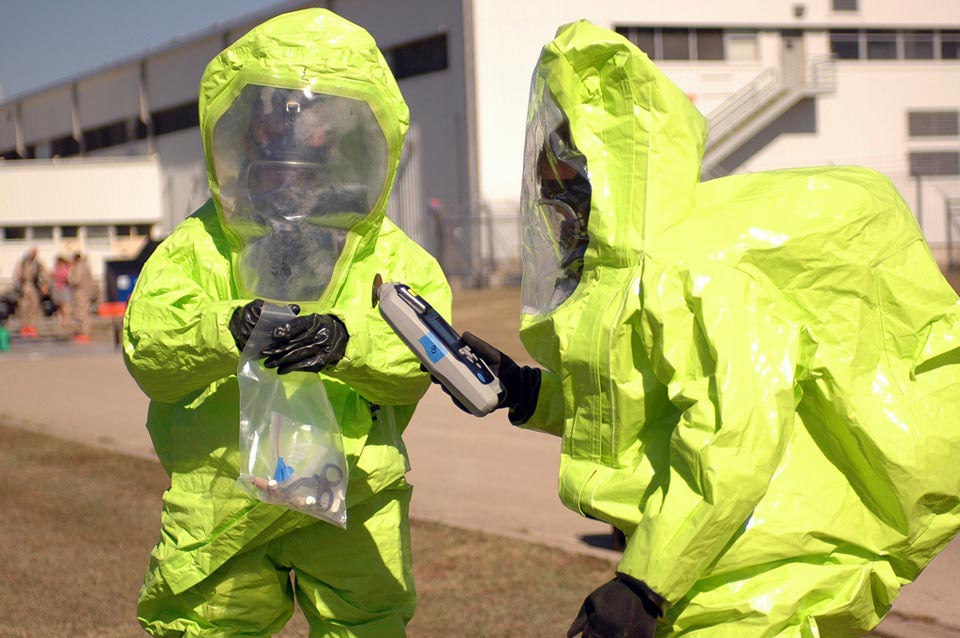Testing Activities using Trailer Mounted Test Units(TMU)

SHIMCO used its Owned 3 TMU units
to execute more than 10,000 testing jobs at QARUN,KHALDA and DARA
fields.
By having high quality testing equipment and qualified crews who perform flowback
after fracturing of wells, to get our customers wells ready for gas and oil production. Our test
equipment is inspected and well maintained for optimal performance.
The company’s main focus is provision of integrated surface well testing services to the customers that are
aimed to receive maximum results from their well testing program following best industry practice in terms of
safety and efficiency.
Using extensive experience of well testing team are capable to provide full range of services in the field of
engineering, operational management and supervision of well testing operations.
We closely cooperate with industry leading manufacturers of well testing equipment and are able to share our
combined expertise and knowledge in order to meet highest requirements of our customers.
The company planned to own wide range of well testing equipment manufactured by industry leaders in accordance
with API, NACE and GOST specification; separator sizes are available from 250, 500, 750, 1440, 2000 psi.
Highly-qualified group of experienced personnel and well testing Engineers & operators will manage Real-time
monitoring of process conditions and Data Acquisition system which monitors separated process streams and
process temperature, and pressure at critical points.
Multiphase-Metering

Two- and three-phase metering systems require expensive and cumbersome test separators, high
maintenance, and field personnel intervention. With diminishing oil resources, oil companies are now
frequently confronted with the need to recover hydrocarbons from marginally economical reservoirs. In order to
ensure economic viability of these accumulations, the wells may have to be completed subsea, or crude oil from
several wells sent to a common production facility with excess processing capacity. The economic constraints
on such developments do not lend themselves to the continued deployment of three-phase separators as the
primary measurement devices. Consequently, viable alternatives to three-phase separators are essential.
Industry’s response is the multiphase flow meter (MPFM).
The oil and gas industry began to be interested in developing MPFMs in the early 1980s. Prior to the 1980s,
single-phase measurements alone were sufficient to meet the industry’s needs. However, depleting oil reserves,
along with smaller, deeper wells with higher water contents, saw the advent of increasingly frequent
occurrences of multiphase flow where the single-phase meters were unable to cope. After a lengthy gestation
period, MPFMs capable of performing the required measurements became commercially available. Since 1994, MPFM
installation numbers have steadily increased as technology in the field has advanced, with substantial growth
witnessed from 1999 onwards. A recent study estimated that there were approximately 2,700 MPFM applications
including field allocation, production optimization and mobile well testing in 2006.
A number of factors have instigated the recent rapid uptake of multiphase measurement technology: improved
meter performances, decreases in meter costs, more compact meters enabling deployment of mobile systems,
increases in oil prices and a wider assortment of operators. As the initial interest in multiphase flow
metering came from the offshore industry, most of the multiphase metering activity was concentrated in the
Mediterranean Sea and the Red Sea. However, the present distribution of multiphase flow meters is much more
diverse. Shimco Engineering Consultant Company is well suited to provide the tailored-made / Fit-for-purpose
Multi-Phase metering services upon request. Shimco Engineering Consultant Company is in process o acquire some
Ad-Hoc multi-phase metering systems for On-Call Basis service provision. For more details, please contact us.
Solid Waste Management

The American Petroleum Institute (API) estimates that approximately 1.21 barrels of total
drilling waste are generated for every foot drilled in the United States. Of this total drilling waste,
nearly 50% is solid drilling waste. The accumulated volume of solid drilling waste generated yearly is
approximately 139,961,305 barrels, which is equivalent to 29,097,984 cubic yards of solid drilling waste --
enough generated waste to fill almost 9000 Olympic swimming pools.
The oil and gas industry must dispose of this waste in accordance with various laws and regulations of
federal, state and local governments and as per Law number 4 I Egypt. In 1976, Congress enacted the Resource
Conservation and Recovery Act (RCRA) (codified at 40 C.F.R. 239 – 299), to classify solid waste as either
hazardous or nonhazardous and to provide guidance for managing both. Hazardous waste is regulated under
Subtitle C of RCRA; other solid wastes are regulated under Subtitle D. In 1978, EPA proposed to exempt oil
and gas exploration and production (E&P) waste from the Subtitle C hazardous waste rules (43 Federal
Register 58946). The exemption was first codified in the 1980 amendments to RCRA (Solid Waste Disposal
Amendments Act of 1980), which was the 1980 amendment to RCRA. The Act required that the EPA conduct further
studies about E&P waste and report to Congress by October 1982. EPA missed that deadline and submitted their
study in December 1987. In 1988, EPA released a regulatory determination that regulation of oil and gas E&P
waste under RCRA Subtitle C was not warranted. The exemption for oil and gas exploration and production
waste is now codified at 40 C.F.R. 261.4 (b)(5). In 1988, EPA also published a list of exempt and non-exempt
wastes. Consequently, most oil and gas exploration and production waste is regulated under Subtitled as
“solid waste.
Shimco Engineering Consultant Co. (with the assistance of its allies); provides waste management and
industrial cleaning services to the oil and gas industry in Egypt.
Shimco Engineering Consultant Company has continually developed its business in response to the dynamic and
challenging needs of the oil and gas industry.
Shimco and its allies Package’ provides all of the waste management, industrial cleaning
and specialized services and support that the oil and gas industry demands, Shimco and its allies
operations, facilities, processes and systems could be specifically designed and constructed to meet the
rigorous standards within the oil and gas sector.
For more details, please contact info@Shimco.com.eg